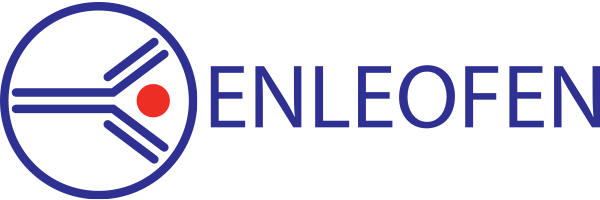Press Release – 26 Sep 2019
Interleukin 11 Identified as New Therapeutic Target for Idiopathic Pulmonary Fibrosis
Singapore, 26 September 2019: Enleofen Bio (“Enleofen”) today announced the publication of data showing that blocking a protein called interleukin-11 (IL11) might treat a severe and fatal lung disease called idiopathic pulmonary fibrosis (IPF). The study was published in the journal Science Translational Medicine on 25 September 2019. It was led by Enleofen’s co-founders, Professor Stuart Cook, and Assistant Professor Sebastian Schäfer, in collaboration with an international team at Duke-NUS Medical School, National Heart Centre Singapore, Cedars-Sinai Medical Center, Los Angeles and the National Heart and Lung Institute, Imperial College, London.
“Progressive lung scarring, called fibrosis, is a very serious condition that makes it difficult to breathe. We discovered that the IL11 protein is critical for fibrotic lung disease and that therapeutically inhibiting IL11 can reverse lung disease in mice,” said Professor Stuart Cook.
Idiopathic pulmonary fibrosis (IPF) is a chronic lung disease that leads to a progressive reduction in lung function. Smoking, old age and family history are risk factors for IPF. Patients suffer from the excessive build-up of scar tissue (also known as fibrosis) around the air sacs of the lungs. The destruction of healthy lung tissue eventually leads to respiratory failure and death and affects up to three million people worldwide. While there are some treatments that can slow the rate at which IPF progresses, there is currently no treatment that can stop or reverse it.
The study found that the protein IL11 is present at abnormally high levels in IPF patients’ lungs, particularly when lung function is badly affected. The scientists then showed that IL11 causes lung fibroblasts – the critical cells that form lung scars – to become over-activated, leading them to invade and destroy lung tissue and prevent oxygen from getting into the body. The team then tested therapeutic molecules designed to bind and neutralize IL11 in mice that mimicked patients suffering from lung disease. This treatment, which is translatable to humans, not only reduced the damage of the lungs in these mice but reversed the fibrosis too, highlighting the potential of IL11 as a drug target for the treatment of IPF.
“IL11 contributes to lung fibrosis in a self-activating loop by stimulating fibroblasts that, in turn, produce and release even more IL11,” explained NHCS researcher Dr Benjamin Ng, the study’s lead author. “We showed that the lungs of the diseased mice were protected from damage if they were given anti-IL11 therapy.”
Based on these exciting preclinical results and previous data showing that IL11 causes fibro-inflammatory conditions in other body organs, Enleofen Bio is developing new drugs to inhibit IL11 activity in patients. These molecules, called therapeutic antibodies, will be tested in clinical trials as early as next year. If successful, this novel approach may not only slow the progression of the disease but could potentially reverse it.
CONTACT:
Enleofen Bio Pte
info@enleofen.com

